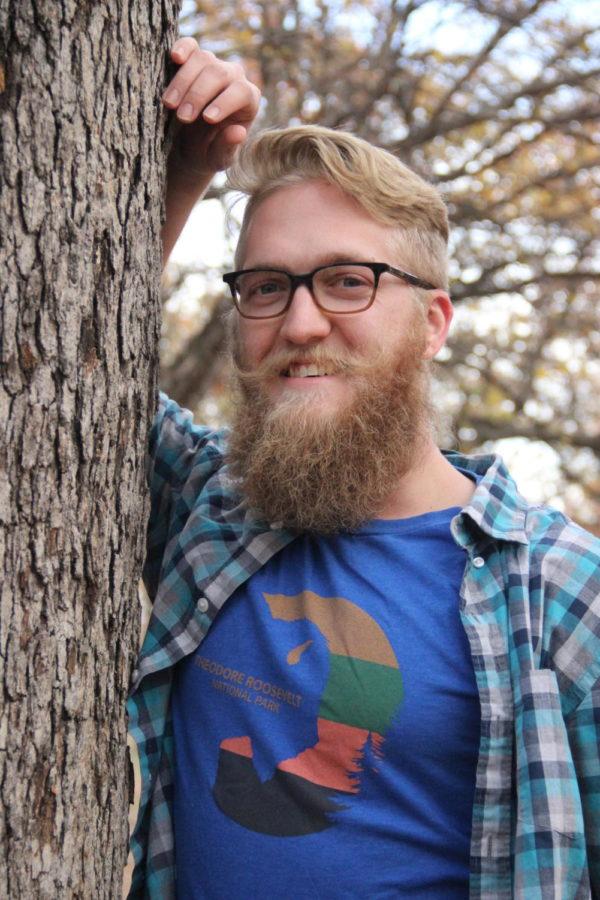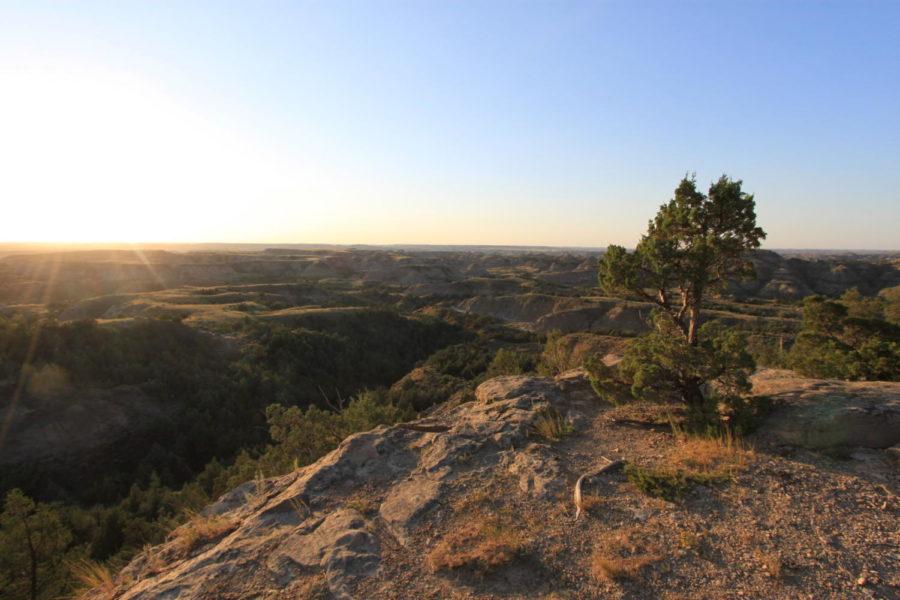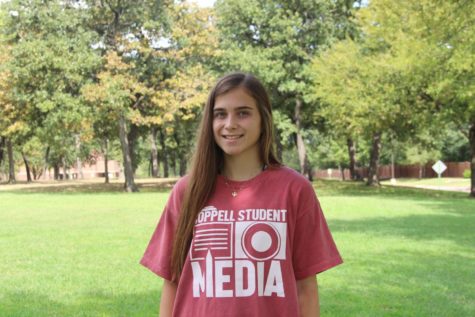Q&A: Holmes takes yearlong leave to North Dakota National Park
Coppell High School English IV teacher Alex Holmes left Coppell to visit a national park in western North Dakota in June 2016. Holmes visited the Theodore Roosevelt National Park, which is well known for the wildlife viewing, scenic drives and many opportunities for outdoor activities.
November 7, 2017
Big Bend, Mount Rushmore, Great Sand Dunes, Rocky Mountain, Zion and Yosemite are just a few of the many national parks AP English IV teacher Alex Holmes visited last year. An avid traveler and nature enthusiast, Holmes traveled to Dickinson, N.D, a small town with a population of 25,000 year round, last year in June. He shares his experiences and lessons from his trip with The Sidekick.
What was the reason to venture out on this trip?
Near the year of my second year at Coppell, my girlfriend had been rigorously trying to apply at National Park Service jobs and had a lot of trouble doing that but she got one in North Dakota. It was a chance in a lifetime, so we decided: why not do it when we’re young?
Why did you personally decide to leave?
I was at a point in my career where I wasn’t sure if I was happy where I was. I had grown and lived in Dallas for the majority of my life, and I didn’t want to feel like I was getting stuck. I wanted to go out and try something new and see if I could push myself to be my own person.
Why was this trip in North Dakota, of all places, for the job?
Simply because it was a national park, and they offered her a job, we went to North Dakota. It was the one park where they accepted her. A lot of parks require females to have military service experience in order to work. Ultimately, this was a smaller park and not a very well known one. It’s not necessarily the most desirable place to live, as it was in the middle of nowhere.
Has hiking always been a big part of your life?
No, a big part of my childhood was allergies. I was allergic to everything, I got shots three to five times a week and I did not have any outdoors experience. But once I went to college, I had built up my immunities. I had some friends who liked to go camping, we went every now and then, and since then it kind of just escalated. I’ve been to at least a dozen national parks and I hope to visit them all at one point. It’s kind of a newer thing for me.
How does touring these scenic locations contrast to life in Coppell?
The first thing is that I never realized the beauty that middle America held. Being able to be so close and so immersed in nature was astounding. There was also a culture of America that I was completely unexposed when I went there. People in the Midwest who live in these 2,000 population areas just have completely different mannerisms to living their life. It’s both laidback but not; both isolating, but unifying. The people you meet there are very close knit but at the same time, it’s harder to become part of that close knit group because these families have been in these towns for generations. Interesting and challenging was conversing and communicating with them because they come from an utterly different background than myself. Here, you have so many types of people with different backgrounds. Even with those types of people, I’ve never met anyone who was like the people who I met up there.
Were you still, in any way, involved with teaching during the trip?
I worked for ETS (Electronic Testing Services) and was an SAT rater. I looked at SAT essays and tried to keep up with that. Additionally, I was in the process of working with counselors, Naviance and students here. I was still communicating with counselors, students to make sure they got their college recommendation letters.
What did you learn from your experiences of touring across the Midwest regions?
I learned that I am someone who thrives by isolation when learning, but someone who cannot sustain themselves in a place that is totally void of culture. If I am going to be in a place that is completely out of my comfort zone, then I need to do more to bring my comfort zone with me.
What was the most gratifying part of being able to travel across the country?
Just being able to see a part of America that I have never seen before. There was much that was unknown to me and I seek thrill and adventure. It was great and wonderful.
How did this trip impact you as a teacher?
I am a little more laidback. I had students who would complain to me that I was a hard grader, beforehand. I’ve taken a step back and that I don’t need to be as much of a perfectionist with work.
What were some of the main challenges you experienced on the trip?
Primarily, there wasn’t a lot of culture there I could attach myself to. There’s all these little things you could do, but ultimately, being unable to attach myself to the community there was very difficult. I tried to work at the library and the schools there. The normal methods of presenting myself weren’t working and not being my normal self was weird. It wasn’t the same.
How did you adjust to your return from leaving for a year?
Very happily, while we’re sad we don’t get to visit a park every weekend or go camping once a month, we missed our families and our friends. Ultimately, we were very happy to come back. My return has been extremely serendipitous. It’s funny that I was struggling so hard to find a place up north, yet the place was already waiting for me when I came back.
How did the school’s staff or other teachers react to your trip?
They were a little bit surprised, but I have presented myself as a person who is willing to go on daring adventures and take chances on things. Ultimately, everyone has been extremely grateful that I’m back and I’m extremely welcome that they’ve welcomed me back.













